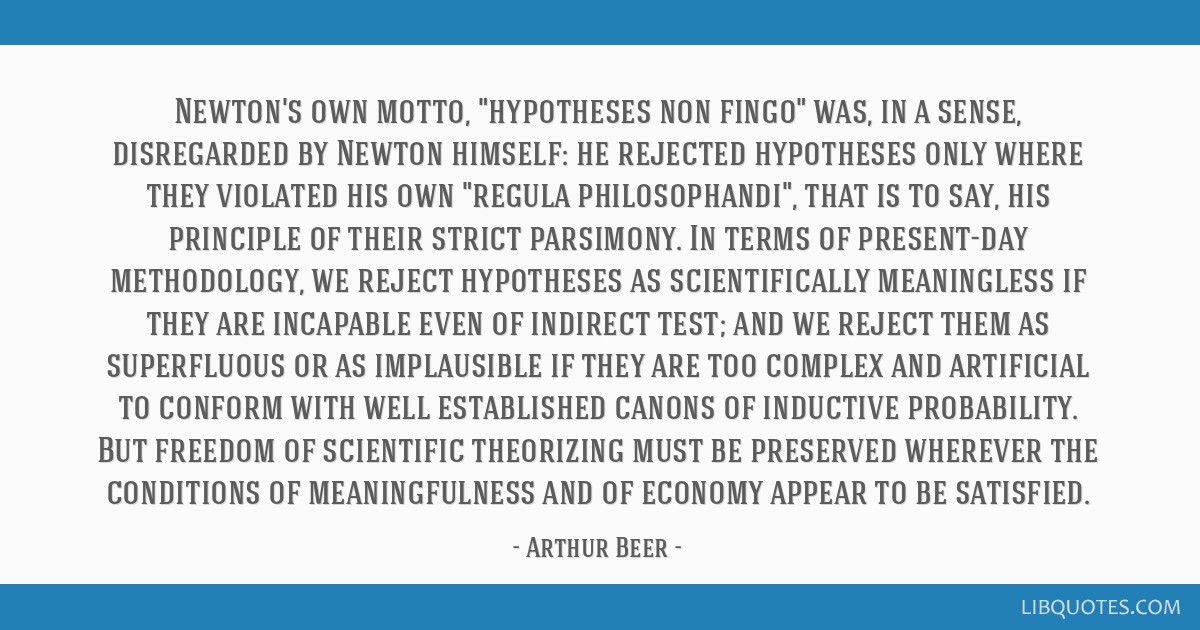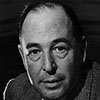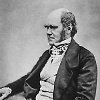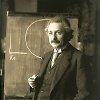Newton's own motto, "hypotheses non fingo" was, in a sense, disregarded by Newton himself: he rejected hypotheses only where they violated his own "regula philosophandi", that is to say, his principle of their strict parsimony. In terms of present-day methodology, we reject hypotheses as scientifically meaningless if they are incapable even of indirect test; and we reject them as superfluous or as implausible if they are too complex and artificial to conform with well established canons of inductive probability. But freedom of scientific theorizing must be preserved wherever the conditions of meaningfulness and of economy appear to be satisfied.
Arthur Beer (ed.), Vistas in Astronomy (1955), Introduction to Vol.1























